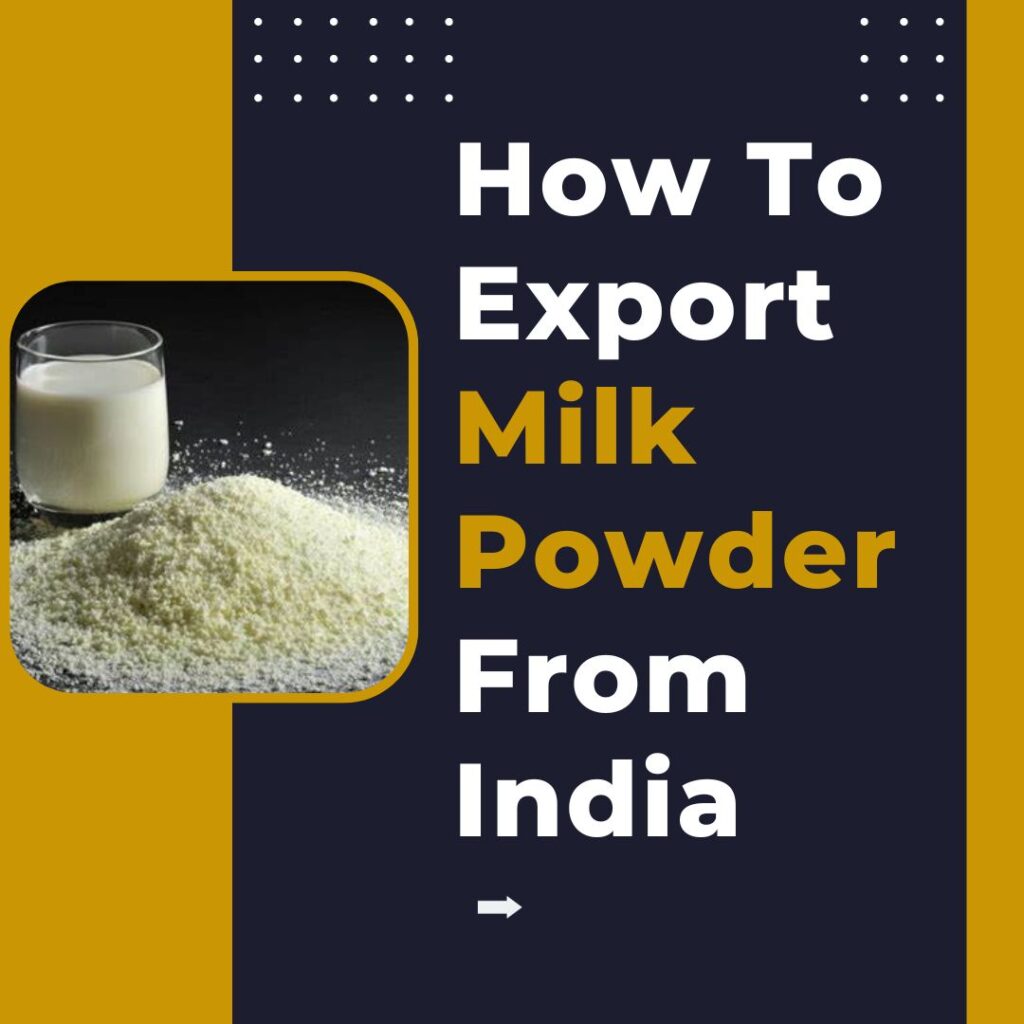Research and Market Analysis:
Conduct thorough market research to identify potential markets for milk powder. Consider factors like demand, competition, and regulatory requirements in the target countries.
Legal Requirements:
Register your business and obtain the necessary licenses from the relevant authorities. In India, this may include the Food Safety and Standards Authority of India (FSSAI) for food-related exports.
Quality Standards:
Ensure that your milk powder meets the quality standards and regulations of both India and the importing country. Adhere to international quality certifications if required.
Packaging and Labeling:
Package the milk powder in compliance with international packaging standards. Labeling should include all necessary information, including ingredients, nutritional information, and expiration dates, as per the regulations of the importing country.
Exporter Registration:
Register with the Export Promotion Councils or Commodity Boards in India, which can provide assistance and information related to exports.
Export Documentation:
Obtain an Import-Export Code (IEC) from the Directorate General of Foreign Trade (DGFT) in India.
Prepare and submit required export documentation, including commercial invoices, packing lists, certificate of origin, and any other documents required by the importing country.
Customs Clearance:
Work with a customs clearing agent to ensure smooth clearance of goods at both the Indian and destination ports.
Shipping:
Choose a reliable shipping method and negotiate freight rates with shipping companies. Consider factors such as transit time, cost, and reliability.
Insurance:
Insure your shipment to protect against potential losses or damages during transit.
Payment and Finance:
Establish a secure and convenient method for international transactions. Consider using methods like letter of credit to ensure payment security.
Compliance with Importing Country Regulations:
Research and comply with the specific regulations and requirements of the importing country. This may include obtaining health certificates, meeting labeling requirements, and adhering to any specific standards.
Networking and Partnerships:
Establish relationships with distributors, importers, or agents in the target market to facilitate the distribution and sale of your milk powder.
After-Sales Support:
Provide after-sales support and maintain communication with your overseas partners to ensure customer satisfaction and address any issues that may arise.
It’s crucial to stay updated on international trade regulations and seek professional advice to navigate the complexities of exporting milk powder or any other food products from India. Consider consulting with trade associations, export promotion bodies, and legal experts with expertise in international trade.
milkpowder #milkpowderexport #howtoexportmilkpowderexportfromindia #milkexportfromindia #exportimportbusiness #milkpowderexport #importexportbusinessinhindi #importexportbusiness #milkexport #exportsofindiafromothercountries #howtoexportmilkfromindia

